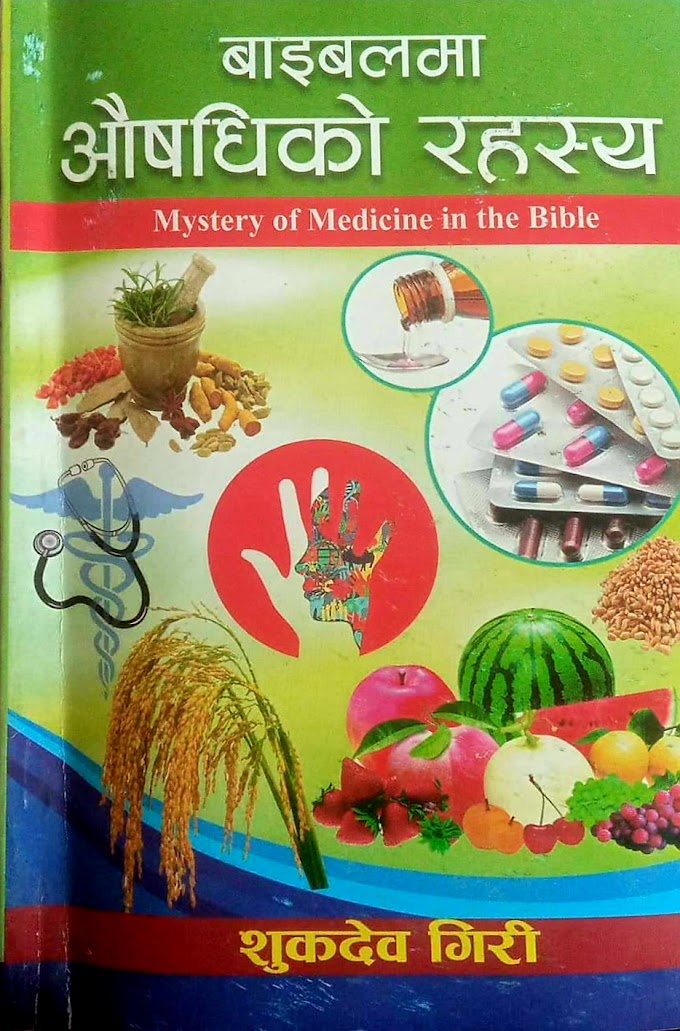Showing posts with the label Book Reviews
Show all
Review: Is there a God?
Book Reviews
-
May 24, 2024
Book Review -Review by: Pabitra M. Bhandari Richard Swinburne , Is there a God? (New York: Oxford University Pres…
बाइबलमा औषधिको रहस्य - भाग ३ - बाइबलमा पञ्चतत्व - येशूले औषधि हरु प्रयोग गर्नु भएको - by Ps. Sukdev Giri || Nepali Christian Magazine
Book Reviews
-
June 28, 2022
बाइबलमा पञ्चतत्व भजनसंग्रह २४ अध्यायको १ पदले भन्छः पृथ्वी र त्यसमा भएका जो-जति छन्, सबै परमप्रभुका हुन्, संसार र …
बाइबलमा औषधिको रहस्य - भाग १ (येशू र औषधि ) - Book by Ps Sukdev Giri
Book Reviews
-
June 07, 2022
येशूले औषधिको बारेमा बताउनुभएको काठमाडौँमा एक जना मानिस जन्डिसले अत्यन्तै विरामी भएर अन्तिम अवस्थामा अस्पतालमा पुग…
Reflection on Book: Ke garne? by Lani Kay Ackerman
Book Reviews
-
April 20, 2020
Reflection on the book: Lani Kay Ackerman. Ke Garne? Sustainable Christian Community Development in the Himalayas. …
Edward Said's Orientalism
Book Reviews
-
April 17, 2020
A Reading and Reflection on: Edward Said's Orientalism by: Pabitra M. Bhandari Introduction Orientalism is a …




















